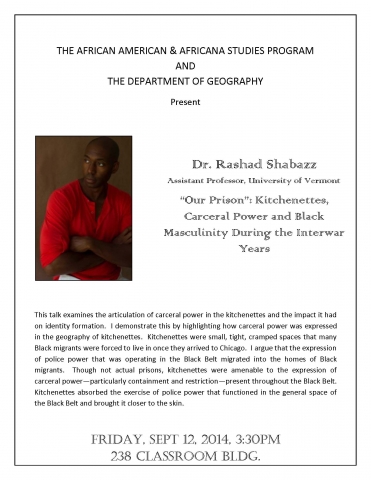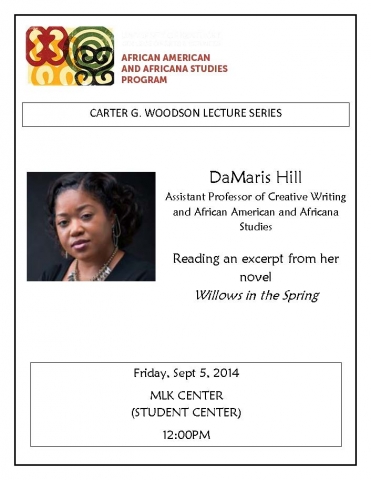Introducing the book: Landesque Capital: The Historical Ecology of Enduring Landscape Transformations.
Join us for the first episode of Office Hours, where we talk to Professor Srimati Basu about family law in India and Doctor Edward Kasarskis about Amyotrophic Lateral Sclerosis (ALS) and the Ice Bucket Challenge. Office Hours is produced by the College of Arts & Sciences and airs on WRFL FM 88.1 every Wednesday from 2-3 p.m.
This podcast was produced by Cheyenne Hohman.
This talk examines the articulation of carceral power in the kitchenettes and the impact it had on identity formation. I demonstrate this by highlighting how carceral power was expressed in the geography of kitchenettes. Kitchenettes were small, tight, cramped spaces that many Black migrants were forced to live in once they arrived to Chicago. I argue that the expression of police power that was operating in the Black Belt migrated into the homes of Black migrants. Though not actual prisons, kitchenettes were amenable to the expression of carceral power—particularly containment and restriction—present throughout the Black Belt. Kitchenettes absorbed the exercise of police power that functioned in the general space of the Black Belt and brought it closer to the skin.

Watch the movie and join in a discussion of fact versus fiction with Susan Bordo, author of the best-selling The Creation of Anne Boleyn and the instructor of a brand new general education course, "Anne Boleyn in Fact, Fiction, and Fantasy".
Film viewing begins at 3:00pm followed by discussion

AAAS presents the Carter G. Woodson Lectures Series.
DaMaris Hill, Assistant Professor of Creative Writing and African American and Africana Studies, will read an excerpt from her novel Willows in the Spring.
